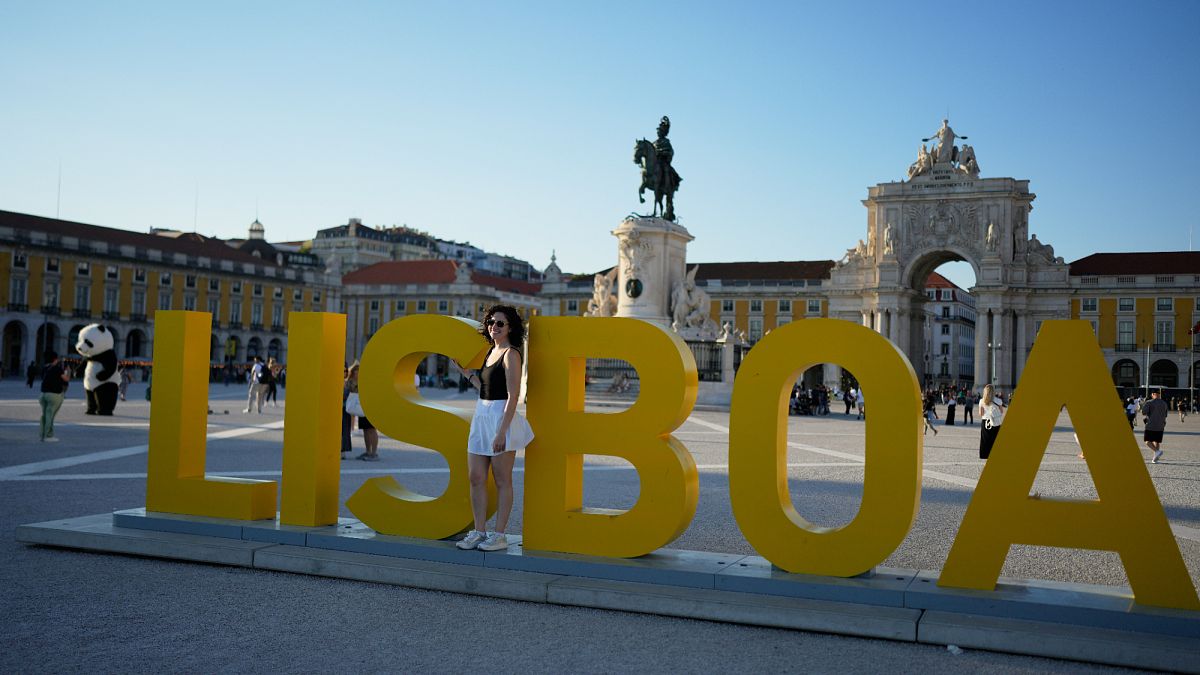Voters in Portugal cast ballots Sunday in local elections, with attention on the mayoral race in Lisbon after a deadly streetcar crash last month.
The election is seen as a key test after the far-right Chega party became the second-largest force in the country’s parliament in a snap national election just five months ago.
The municipal elections could be decisive in expanding the presence of the far right throughout the country, with the Chega party having its first real chance at electing mayors, especially in the Alentejo and Algarve regions.
Chega is betting on some of the party’s biggest names, including several MPs, as candidates in some of the country’s most important cities, such as Pedro Pinto in Faro and Rita Matias in Sintra. Chega’s candidates are even in a technical tie with the Socialist Party (PS) and Social Democratic Party (PSD) in cities like Sintra and Setúbal.
In the country’s two main cities, close contests are expected between the candidates of the centre-right government coalition (PSD-CDS) and the Socialist Party, which is running alone in Porto and in a broad coalition in Lisbon.
A tight race in Lisbon and Porto
In Lisbon, Mayor Carlos Moedas, head of the centre-right coalition, faces Alexandra Leitão of the PS-led coalition, a law professor, in the municipal race for a four-year term.
Moedas was elected by the narrowest of margins in 2021, after 14 years of socialist governance in the capital.
The vote comes after 16 people including 11 tourists were killed in the Elevador da Glória steetcar crash last month, causing a public outcry. Moedas rejected any blame and refused to resign.
The Elevador da Glória tragedy dealt a heavy blow to the Lisbon mayor and jeopardised Moedas’ re-election plans.
But many say their vote is influenced far more by other issues in the city, such as housing policies and trash collection as Lisbon creaks under the strain of a surge in tourists and a steep climb in real estate prices.
Leitão, who wants to become the capital’s first female mayor, could be challenged by the candidacy of João Ferreira for the CDU (Communist Party-led coalition), who has extensive experience as a councillor and didn’t want to join the PS-led coalition, which also includes the Left Bloc, Livre and PAN (People-Animals-Nature).
The diversion of votes from Leitão to Ferreira could prove decisive for the eventual re-election of Moedas, who heads a coalition that includes the PSD, People’s Party (CDS) and Liberal Initiative.
In Porto, the country’s second biggest city, the elections mark the first time the current mayor, Rui Moreira, who has been in office since 2013, cannot run, due to a law that limits the number of terms in office.
Moreira was elected as an independent, with support from the CDS and the Liberal Initiative, defeating candidates from the main parties. Without Moreira in the equation, the race is focused on the Socialist Party, with former Health Minister Manuel Pizarro as its candidate, and the PSD/CDS coalition, whose leading figure is Pedro Duarte, until recently Minister of Parliamentary Affairs.
Independents on the rise
The number of independent candidates has increased steadily in recent years. The first mayors to be elected on independent lists appeared in 2005, when there were only seven, but this increased to 19 in the 2021 elections.
The 9,303,840 registered voters cast their ballots to elect city councils, municipal assemblies and parish assemblies in 308 municipalities and 3259 parishes across mainland Portugal and the archipelagos of Madeira and the Azores.
In all, 800 political forces and independent citizens’ groups are running in these elections.
With the usual high abstention rate, which reached a record 47.4% in 2013, a higher turnout is expected this year.

